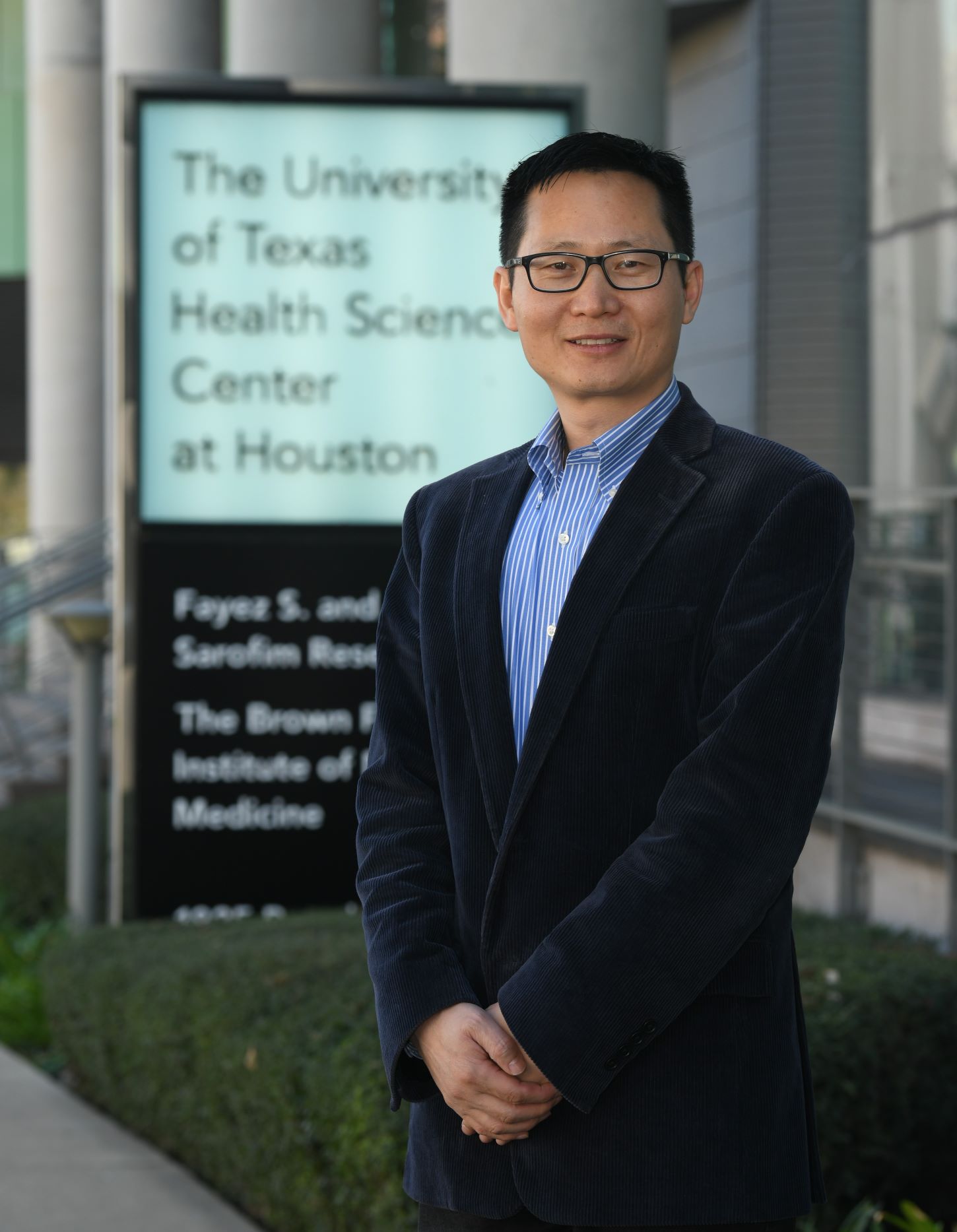NEW CENTER: Understanding the brain immune system

Long-Jun Wu, PhD, is the inaugural director of the Center for Neuroimmunology and Glial Biology.
Harnessing the brain’s immune system to combat neurological disease is the force behind the IMM’s new Center for Neuroimmunology and Glial Biology (CNG).
Traditionally, the brain was considered devoid of an immune system due to the protective blood-brain barrier. Recent understanding has unveiled the existence of a resident immune system in the brain.
Like a healthy immune system warding off disease, the brain’s immune system regulates neurological health. Discovery of the brain’s immune system has reshaped the understanding of neuroscience over the past two decades.
“We now know the brain has its own immune system, and the peripheral immune cells can also enter into the nervous system,” explained Long-Jun Wu, PhD, the inaugural center director. “Just as immunotherapy is used to treat cancer, we aim to use our brain’s immune system to battle brain diseases, such as neurodegenerative disease, epilepsy, pain, and stroke.”
As resident immune cells in the brain, microglia naturally bridge the nervous system with the immune system. Wu’s research explores how microglia interact with neurons and other
brain cells.
“Microglia are very smart; they constantly survey the brain environment,” he said. “Whenever there are problems, microglia will sense that and try to help.”
In addition to microglia, Wu’s team also studies how peripheral immune cells infiltrate the brain and interact with the nervous system under disease contexts.
Wu joins the IMM from the Mayo Clinic College of Medicine and Science in Rochester, Minn. More than 10 team members from Mayo will join Wu at the IMM, with plans to recruit five new faculty members to establish the center.
Wu earned his doctorate in neurobiology from the University of Science and Technology of China. He completed postdoctoral fellowships at the University of Toronto and at Harvard Medical School. He has been professor of neurology and neuroscience at Mayo since 2019 and was associate director of the Neuroscience PhD Program there.
Wu switched his research focus to the brain’s immune system in 2005 during early postdoc training after seeing breakthrough work of microglia in vivo imaging.
“I had been a hardcore neurobiologist, but then I saw the first moving microglia in vivo, and I was so intrigued,” he said. “I thought, ‘this cell is so
cool!’”
Wu and his team have published numerous papers on the role microglia play in diseases such as epilepsy, neuropathic pain, and Lou Gehrig’s disease as well as neuromyelitis optica, a rare autoimmune disorder.
As CNG takes shape, Wu will assemble a cohort of research faculty, each contributing their unique expertise to unravel the mysteries of the brain’s immune system. The center will work with established scientific colleagues at IMM and McGovern Medical School, including Louise McCullough, MD, PhD, chair of the department of Neurology, who studies vascular diseases and inflammation; Jiaqian Wu, PhD, IMM professor, who brings expertise proficiency in bioinformatics; Qingchun Tong, PhD, IMM professor, who focuses on metabolic diseases; and Rodney Ritzel, PhD, assistant professor of neurology, who studies neuroimmune crosstalk after traumatic brain injury.
The new center promises not only to deepen the understanding of neuroimmunology and glial biology but also to pave the way for innovative approaches to treating a myriad of brain diseases using neuroimmunespecific therapeutic targets.
